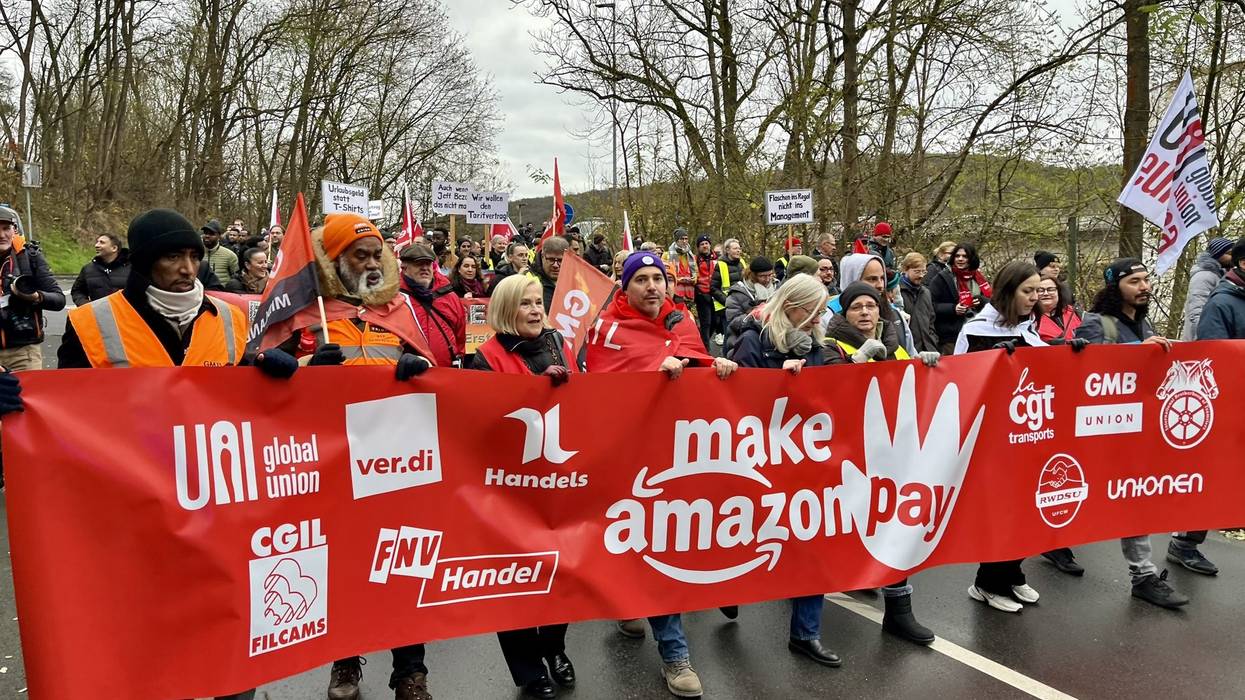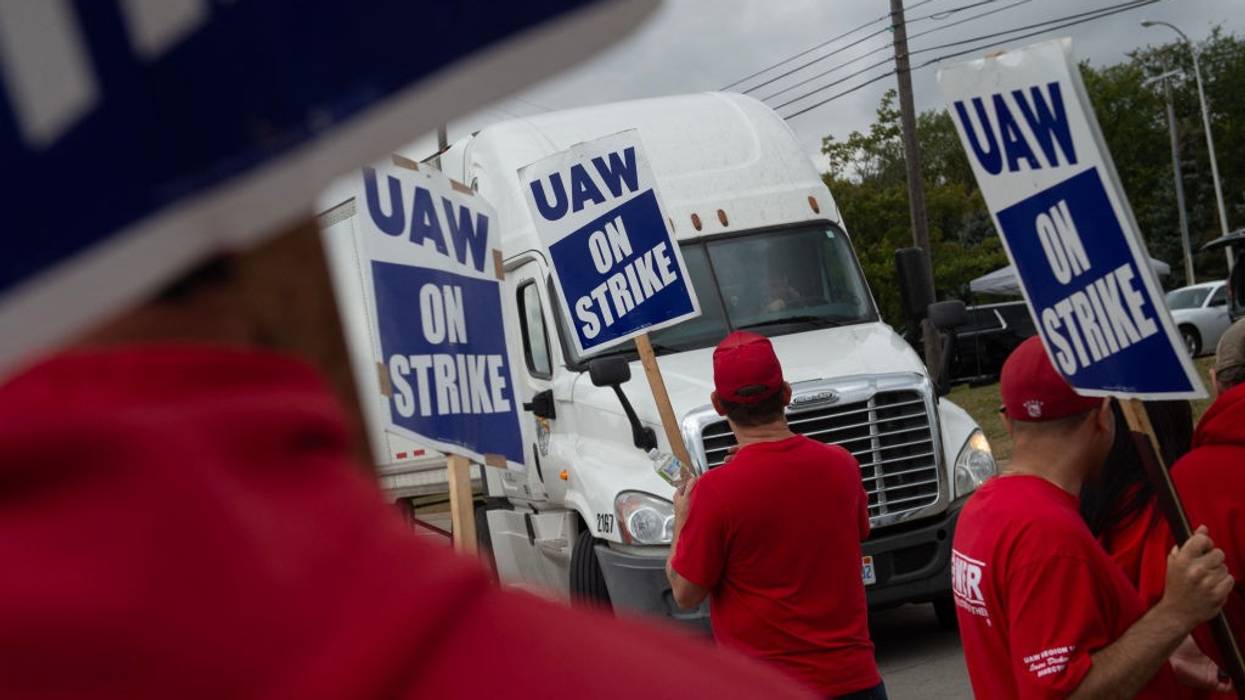"When we announced our intention to protest today, our management attempted to stop us in multiple ways. We want to say to Amazon—you could not stop us today, you cannot stop us in the future," said the general secretary of the Amazon India Workers Union during a demonstration held in India on Friday.
Make Amazon Pay Day was launched in 2020 by UNI Global Union and the left-leaning movement group Progressive International. It has expanded each subsequent year, say organizers, and today the coalition behind Make Amazon Pay Day brings together a wide range of groups, including climate, racial, and economic justice organizations.
According to Progressive International, actions taking place as part of the campaign include but are not limited to: strikes at multiple warehouses in Germany; direct actions in French towns and cities led by the justice group Attac; a rally in India by Amazon workers over unsafe working conditions; and a protest by trade unionists at an Amazon call center. All told, actions are supposed to take place in over 30 countries.
"This fight is global. Every picket, every strike, every action of solidarity matters. Another world is possible, and we are building that world one strike, one conversation at a time. Together, we are unstoppable," said Christy Hoffman, UNI Global Union's general secretary, on Friday while speaking to striking workers in Germany.
The campaign alleges that Amazon "squeezes" workers, communities, and the planet. For example, "while tripling profits in early 2024, Amazon surveils and pressures drivers and warehouse workers at the risk of severe physical and mental harm," according to campaign materials.
Responding to the campaign, an Amazon U.S. spokesperson told Newsweek: "The fact is at Amazon we provide great pay, great benefits, and great opportunities—all from day one. We've created more than 1.5 million jobs around the world, and counting, and we provide a modern, safe, and engaging workplace whether you work in an office or at one of our operations buildings."
Online, progressive political figures lent their support to the effort.
"Today, I stand with Amazon workers in over 30 countries around the world striking and protesting to #MakeAmazonPay," wrote Jeremy Corbyn, former leader of the British Labour Party.
"While billionaire Bezos tours the world on his $500m yacht, Amazon workers in 20+ countries are rising up this Black Friday to demand fair wages, union rights, and climate action. Amazon must pay its fair share and respect workers. I stand with #MakeAmazonPay," chimed in U.S. Sen. Bernie Sanders (I-Vt.) on X.
Following the inaugural Make Amazon Pay campaign in 2020, hundreds of lawmakers from dozens of countries endorsed the effort with an open letter to Jeff Bezos, the founder of Amazon.
"The world knows that Amazon can afford to pay its workers, its environmental cost, and its taxes. And yet—time and again—you have dodged and dismissed your debts to workers, societies, and the planet," the letter alleged. U.S. signatories included Reps. Ro Khanna (D-Calif.), Ilhan Omar (D-Minn.), and Rashida Tlaib (D-Mich.).




